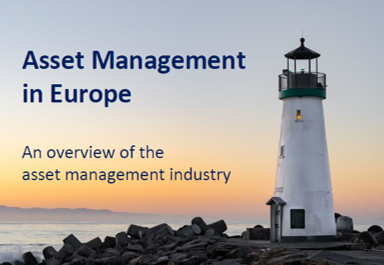EFAMA welcomes the consultation that the European Commission launched on the cross-border distribution of different types of investment funds (AIFs, UCITS, EuVECA/EuSEF, and ELTIF) and the opportunity to respond as to the remaining barriers to marketing funds across the EU single market, as well as the ways to eliminate them. We, also, fully share the goal of the European Commission in seeking further ways to deepen the Single Market for investment funds.
Management Companies
EFAMA has been looking at legislative proposals with a direct impact on asset management companies and services, and closely follows any regulatory developments of critical importance to the sector. In addition to issues related to risk management and financial stability, high up on the agenda of EFAMA members is the framework for a prudential regime for Investment Firms (IFD/R), and related implementing measures directly descending from such framework.
EFAMA is focused on minimising the impact of the rules on asset management companies, in particular those holding a limited MiFID license. Key to the sector is the need for proportionality, especially firms that are not authorised to hold client money/securities, or to deal on their own account.
EFAMA response to the European Commission’s consultation on the barriers to cross-border distribution of funds
EFAMA response to ESMA Call for Evidence on asset segregation
EFAMA welcomes ESMA’s Call for Evidence on asset segregation and custody services as a precious occasion to confirm our previous key messages - as per our response to the previous consultation around Guidelines on asset segregation under the AIFMD of December 2014 – and to clarify our position on new aspects of ESMA’s work.
EFAMA reply to FSB consultation on proposed policy recommendations to address structural vulnerabilities from asset management activities
EFAMA firstly wishes to commend the FSB’s change of focus in the course of 2015, from a proposed assessment methodology intended to identify non-bank, non-insurance globally systemically important financial institutions (NBNI G-SIFIs) to a revised and more objective focus on asset management activities. Although we understand the former framework may be revisited by the FSB once its Recommendations are finalised, we appreciate that certain key characteristics of the asset management industry have been recognised and well reflected in the present consultative document.
European Alternative Fund Managers Directive stands the test of time
The European Fund and Asset Management Association (EFAMA) has published today its response to the European Commissions public consultation on the review of the Alternative Investment Fund Managers Directive (AIFMD).
Monthly Statistics November 2020 | News of vaccines drove record net sales of UCITS equity funds
The European Fund and Asset Management Association (EFAMA) has today published its latest monthly Investment Fund Industry Fact Sheet, which provides net sales data of UCITS and AIFs for November 2020*.
Monthly Statistics October 2020 | Inflows in bond funds drive positive UCITS net sales in October
The European Fund and Asset Management Association (EFAMA) has today published its latest monthly Investment Fund Industry Fact Sheet, which provides net sales data of UCITS and AIFs for October 2020*.
Bernard Delbecque, Senior Director for Economics and Research commented: "Net sales of UCITS equity funds, although remaining positive, fell to a very low level in October against the backdrop of increases in Covid-19 cases and new lockdown measures."
The main developments in October 2020 can be summarized as follows:
Asset Management Report 2019
The EFAMA Asset Management in Europe report aims at providing facts and figures to gain a better understanding of the role of the European asset management industry. It takes a different approach from that of the other EFAMA research reports, on two grounds. Firstly, this report does not focus exclusively on investment funds, but it also analyses the assets that are managed by asset managers under the form of discretionary mandates. Secondly, the report focuses on the countries where the investment fund assets are managed rather than on the countries in which the funds are domiciled.

































